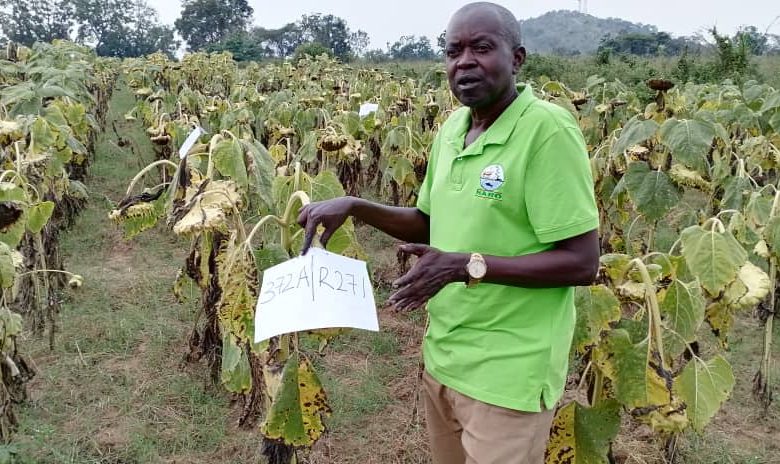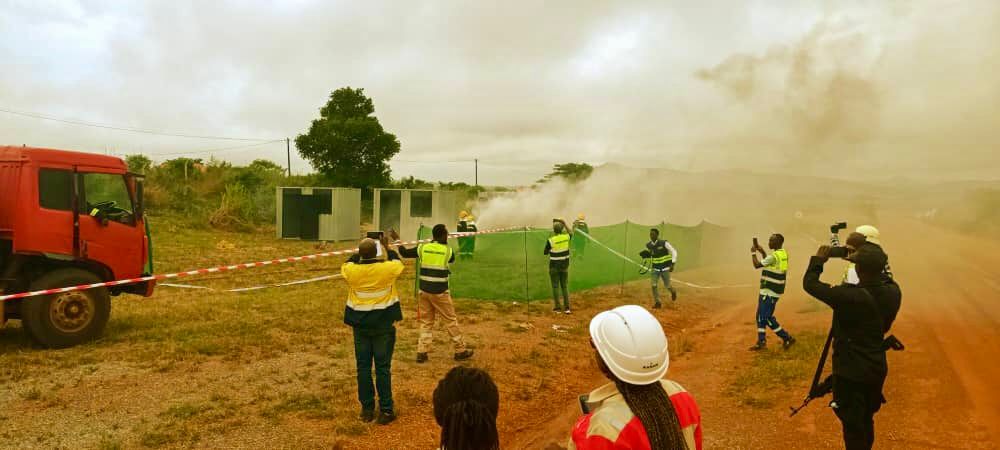NASARRI to release ten new sunflower hybrid varieties
To this end, NaSARRI is to release ten new varieties to farmers in a major effort aimed at increasing the plant’s acceptability within the population.

Sunflower farmers are to get relief following strides by the National Semi- Arid Resources Research Institute (NaSARRI) in developing local hybrid seeds that are fast maturing and adaptive to local soils and climatic conditions.
To this end, NaSARRI is to release ten new varieties to farmers in a major effort aimed at increasing the plant’s acceptability within the population.
Sun flower is a major cash crop in parts of eastern and northern Uganda; with the crop a key ingredient for the cooking oil industry. The seed cake is also used as animal feed.
However, the high cost of sun flower seed is affecting production; with farmers forking out Ush70,000 – Ush90,000 for a kilogram of imported hybrid seeds. Uganda mostly imports its seed from South Africa and Canada.
To solve this challenge, researchers at the National Semi- Arid Resources Research Institute (NaSARRI) in Serere district led by Dr Walter Anyanga, the national sunflower breeder, have developed ten varieties of sunflower that are to be released to farmers.
The ten were singled out of 36 varieties trialed with farmers in Lango sub region between 2019 and 2023.
“We are going out to all these places where they grow sunflower to validate ten of the thirty varieties identified in Lango. We have begun to multiply the parental lines and we are to give the hybrids to the farmers so they plant and give us feedback as we also follow to find out how they are performing,” Dr Anyanga said.
The germplasm was imported the USA, Canada, Serbia and Romania.
Sunflower oils are 100% fat and contain vitamin E, a fat-soluble nutrient that protects cells from age-related damage. Also, sunflower oils do not contain protein, carbs, cholesterol, or sodium. Despite these benefits, the oil is relatively expensive for most Ugandans, since the plant’s seeds are mostly imported.
“Importing sun flower seed is a problem because it is very expensive. A kilogram of the imported variety is sold Ush 90,000 a kilogram by some dealers. Mukwano group which also imports seeds from South Africa sells a kilogram at Ush 75,000. You realize that’s very expensive for the ordinary farmer hence the need to develop our own hybrids,” Dr Anyanga explained.
There is hope increased local production will reduce the country’s import bill.
“Sunflower is an important crop but we haven’t realized this yet in Africa. Over 90% of our sunflower oil was imported but we are going to reduce this by releasing these hybrids. The oil from sunflower is very good. It doesn’t give any cholesterol because it’s very pure and has no side effects.
For livestock, there are people who come from Kenya to buy the seed cake which is very useful in feeding livestock. That is why sunflower is very important,” Dr Anyanga said.
The hybrid seeds were selected because they are fast maturing and adaptive to the soil and climatic conditions in various parts of Uganda – as compared to those imported.
“We tend to select varieties that are early maturing as one of the measures to adaptation to climate change. We also take into consideration varieties that have a high oil content because the processors’ main interest is the oil content.”
The rollout of the new varieties builds on the progress made by a previous project supported by the Uganda Development Bank (UDB).
“Funding from government is very difficult to get probably due to competing priorities. Most donors are also very specific explaining why we have not been having a particular funder for sunflower research. That’s how Uganda Development Bank (UDB) came up to give us some funding. The National Seed Oil Project has also come in to fund our research for seven years,” Dr Anyanga noted.







